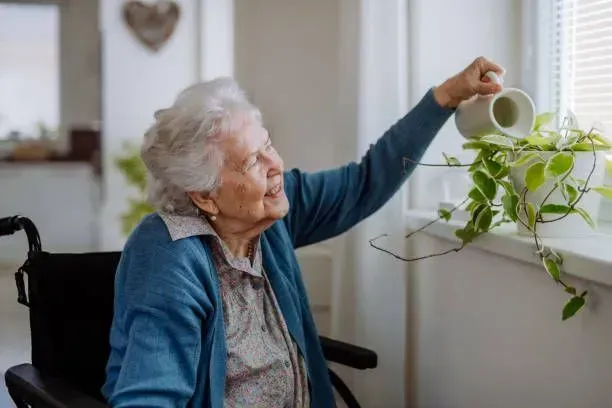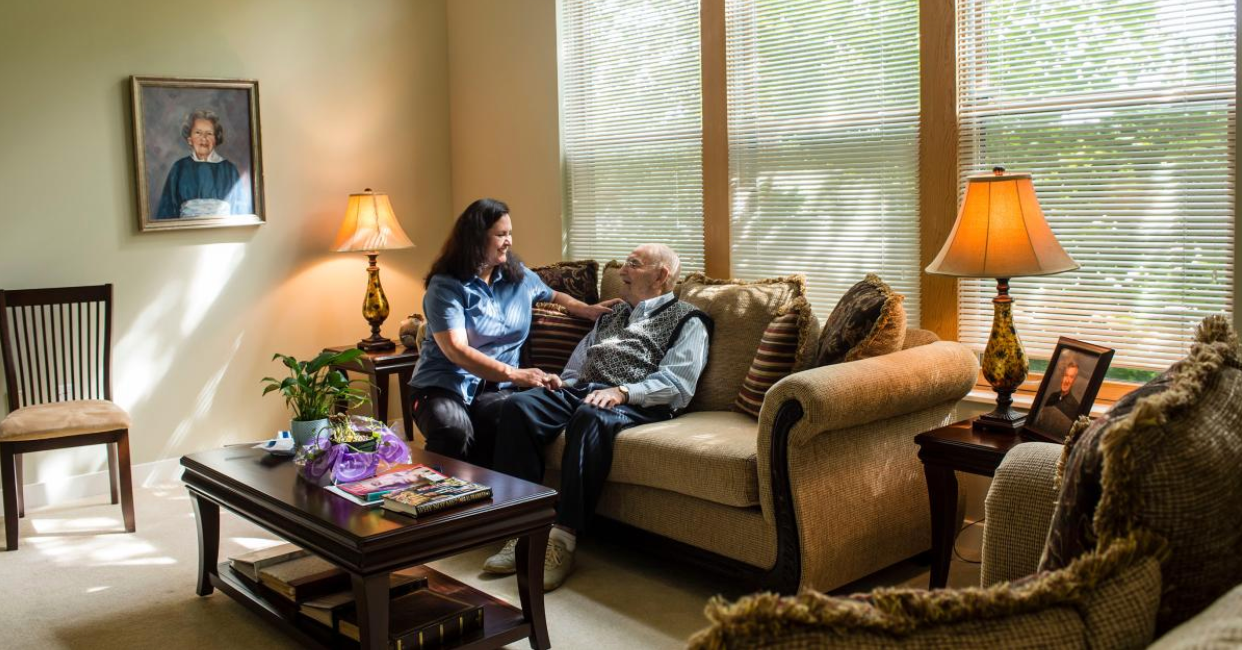Transient Ischemic Attacks (TIAs): Risks of Stroke and Dementia

Transient Ischemic Attacks (TIAs), often referred to as "mini-strokes," are temporary disruptions of blood flow to the brain that can last for a few minutes to a few hours. While TIAs may seem fleeting, they should not be underestimated, as they can serve as crucial warning signs of more severe conditions, including stroke and vascular dementia.
Understanding TIA:
TIAs occur when there is a brief reduction in blood supply to the brain. This can happen due to a temporary clot or blockage in a blood vessel. Unlike a full-blown stroke, TIAs typically do not cause permanent damage, but they should be considered red flags indicating an increased risk of more severe cerebrovascular events. Understanding the causes of TIA is crucial for prevention and management. Some common causes of TIAs include:
- Blood Clots: Embolism: A blood clot, plaque, or debris can form in another part of the body (often in the heart or large arteries) and travel to the brain, causing a temporary blockage.
- Atherosclerosis: Buildup of Plaque: Atherosclerosis is the gradual buildup of fatty deposits (plaque) on the inner walls of arteries. If a plaque ruptures, it can lead to the formation of a blood clot, causing a TIA.
- Arterial Dissection: Tearing of Arterial Walls: Dissection involves a tear in the walls of the arteries that supply blood to the brain. This tear can lead to the formation of a blood clot and subsequent TIA.
- Cardiac Issues: Atrial Fibrillation: Irregular heart rhythms, such as atrial fibrillation, can lead to the formation of blood clots in the heart, which may travel to the brain. Valvular Disease: Conditions affecting the heart valves can disrupt blood flow and contribute to the risk of TIAs.
- Hypertension (High Blood Pressure): Damage to Arteries: Persistent high blood pressure can damage the arteries, making them more susceptible to the formation of clots and the development of a TIA.
- Diabetes: Microvascular Changes: Diabetes can cause changes in the small blood vessels, contributing to the risk of TIAs.
- Smoking: Vasoconstriction and Atherosclerosis: Smoking is a major risk factor for the development of atherosclerosis and can also cause the blood vessels to constrict, increasing the risk of TIAs.
- Hyperlipidemia (High Cholesterol): Plaque Formation: Elevated levels of cholesterol can contribute to the formation of plaque in the arteries, leading to the risk of blood clots and TIAs.
- Age: Natural Aging Process: The risk of TIAs increases with age, as the blood vessels may become less elastic and more prone to damage.
- Genetic Factors: Family History: A family history of stroke or cardiovascular diseases can increase an individual's predisposition to TIAs.
It's important to note that these causes are often interconnected, and individuals may have multiple risk factors simultaneously. Lifestyle modifications, such as maintaining a healthy diet, regular exercise, smoking cessation, and managing chronic conditions like hypertension and diabetes, can significantly reduce the risk of TIAs and their associated complications. If someone experiences symptoms suggestive of a TIA, seeking immediate medical attention is crucial for proper diagnosis and preventive measures.
Warning Sign of Stroke:
TIAs are often described as warning strokes, providing an opportunity for medical intervention before a major stroke occurs. Individuals who experience a TIA may exhibit symptoms such as sudden weakness, numbness, vision problems, or difficulty speaking. These warning signs should never be ignored, as they may be indicative of an impending stroke. Again, If you experience these symptoms of a Transient Ischemic Attack (TIA), it is imperative to seek immediate help from your doctor or other healthcare professionals. TIAs are critical warning signs of potential strokes and vascular dementia, and prompt medical intervention can significantly reduce the risk of more severe cerebrovascular events. Time is of the essence, as early diagnosis and appropriate treatment can help prevent long-term damage and improve outcomes. Do not dismiss these symptoms or delay seeking medical attention, as timely intervention can make a crucial difference in preserving both your brain health and overall well-being.
Link to Vascular Dementia:
Beyond the immediate risk of stroke, TIAs are also associated with an increased likelihood of developing vascular dementia. Vascular dementia is a type of dementia that occurs when there is damage to the blood vessels in the brain, impairing cognitive function. Each TIA contributes to the cumulative damage, heightening the risk of vascular dementia over time.
With respect to TIA diagnosis and vascular dementia, Cedars Sinai explains "Transient ischemic attack patients are tested for any signs of memory loss using neurological exams focused on the person's mental abilities. Imaging diagnostic tools such as magnetic resonance imaging (MRI) and a Computed tomography (CT) scan can show the inside structures of the brain to determine if any areas have been permanently damaged. If a more serious form of memory loss, known as vascular dementia, is suspected, the medical team may also use a carotid ultrasound to diagnose the condition. This procedure is used to see if there are any signs of narrowing in the arteries that run up the neck and supply blood to the brain, known as carotid arteries. This procedure is non-invasive and uses sound waves to create images of the arteries."
Prevention and Management:
Preventing TIAs involves addressing modifiable risk factors and adopting a healthy lifestyle. Regular exercise, a balanced diet, and avoiding smoking can contribute to better vascular health. Additionally, managing conditions such as hypertension and diabetes is crucial for preventing TIAs and their associated complications. Medical intervention, such as antiplatelet medications, may be prescribed to reduce the risk of blood clots. In some cases, surgical procedures or interventions to address narrowed blood vessels may be recommended.
While TIAs may seem transient, their significance as warning signs of stroke and vascular dementia cannot be overstated. Recognizing and addressing the risk factors, seeking prompt medical attention after a TIA, and adopting a healthy lifestyle are vital steps in preventing more severe cerebrovascular events. Education and awareness about the connection between TIAs, stroke, and vascular dementia are crucial for promoting early intervention and improving outcomes for individuals at risk.
The information provided in this article is for educational and informational purposes only. It is not intended to be a substitute for professional medical advice, diagnosis, or treatment. Always seek the advice of your physician or other qualified health provider with any questions you may have regarding a medical condition. Never disregard professional medical advice or delay in seeking it because of information presented in this article. The mention of medical interventions, such as antiplatelet medications, or surgical procedures is not a prescription or endorsement, and the appropriateness of any specific treatment should be determined by a qualified healthcare professional based on an individual's medical history and condition. Any reliance on the information in this article is at your own risk, and the author and publisher disclaim any liability for any adverse effects resulting directly or indirectly from the use of the information provided.
At 7 Day Home Care, we understand the significance of comprehensive healthcare, especially for individuals requiring specialized in-home dementia care in Manhattan, Queens, Brooklyn, Nassau County, and Suffolk County, New York. Our dedicated team is committed to providing compassionate and tailored support, ensuring the well-being of those in need. Contact 7 Day Home Care today at 516-408-0034 to learn more about our home care services in Manhattan, Queens, Brooklyn, Nassau County, and Suffolk County, New York.
Brian Callahan
7 Day Home Care










